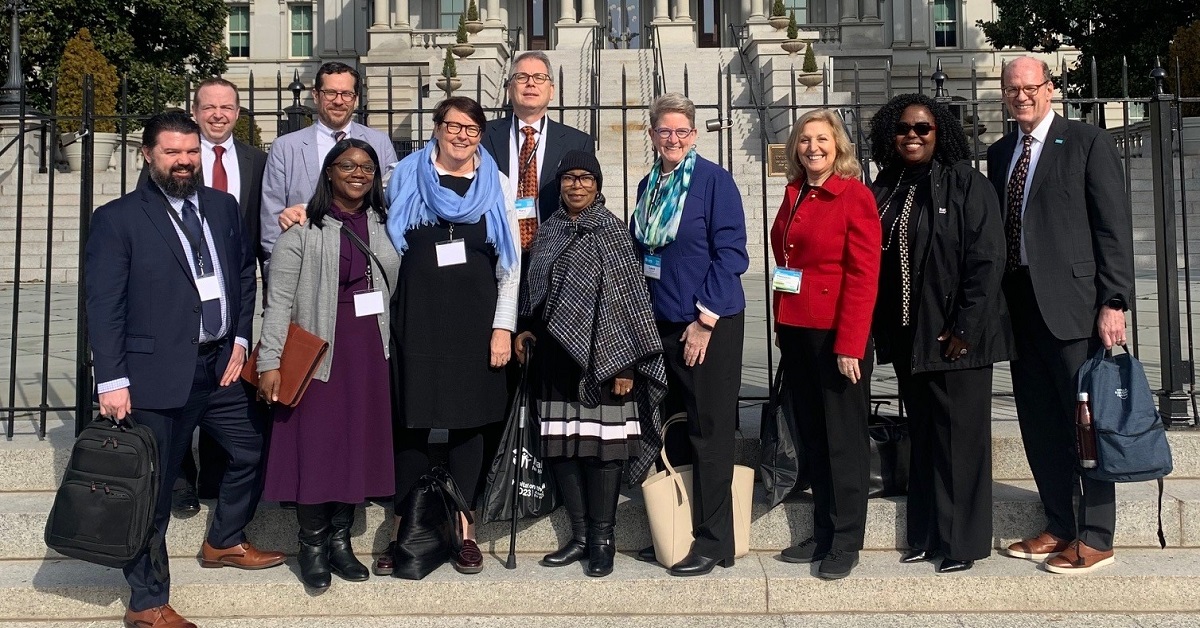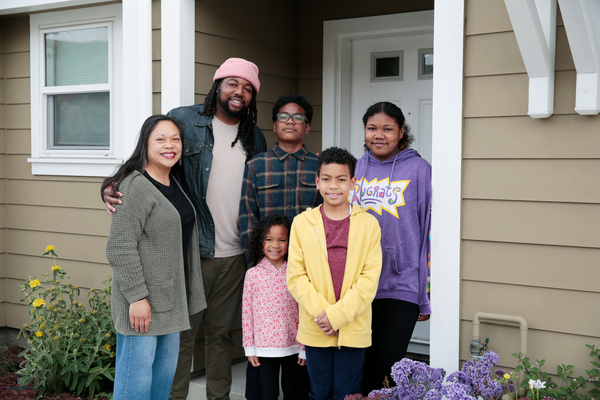Let’s stay connected
Sign up for the monthly Habitat GSF newsletter to stay in touch and keep up to date on affordable homebuilding and homeownership in San Francisco, San Mateo & Marin counties.

Imagine spending more than half your paycheck on housing. That’s the reality for 1 in 5 families in California. And for low-income households, that means having to make impossible choices between paying for groceries, medicine or a utility bill and paying for the roof over their heads. Here in the Bay Area the situation is even more acute, where residents have to earn over $267,000 per year to afford to own a median-priced home. What does this mean for teachers, nurses and first responders – and even many of you reading this right now – who don’t meet that threshold? Our essential workers cannot afford to live where they work.
Housing data to be aware of:
We’ve all seen the headlines: home prices are soaring and rents are going up drastically. At Habitat for Humanity, we know this negative trend is compounded by a historic lack of entry-level home construction. We are in a housing affordability crisis in California – one that is exasperating an ever-growing wealth gap that can be felt for generations and is disproportionately impacting BIPOC communities.
These are the urgent issues I raised with policymakers when I was in Washington last week, where I joined with hundreds of affordable housing advocates for our annual Habitat on the Hill event. We met with 300 policymakers on both sides of the aisle to talk about how we solve this crisis together.

On Tuesday, I went to the White House with my colleagues for a meeting with Erika Poethig, Special Assistant to the President for Housing and Urban Policy, where we outlined the affordable housing policies we need the Biden Administration to support. I was energized by her deep commitment to partner and connect on funding from the U.S. Department of Housing and Urban Development (HUD), as well as her ideas around tapping into the Inflation Reduction Act for energy efficiencies grants and the USDA rural development program. Our discussion also touched on our work to find a sponsor for the Neighborhood Homes Investment Act, which has been introduced in the Senate as S. 98 and calls for the creation of a new federal tax credit that will produce new equity investment dollars for the development and renovation of 1-4 family housing in distressed urban, suburban, and rural neighborhoods.
Later that night, as I watched the President give his State of the Union address, I was particularly struck by his call to invest in people and places that have been left behind, and to reach people who have been “treated like they’re invisible.” This resonated deeply with me because our Habitat Homeowners tell me they feel left behind and locked out of affordable homeownership. We need to see housing as infrastructure. Our work cannot stop until everyone has a decent place to live, and where we create stability for families so they can plant roots and build economic security through homeownership.

And then on Wednesday I had a very productive conversation with former Speaker Nancy Pelosi. We talked about the housing challenges faced by all Californians and, in particular, Black Californians. Between 2000 and 2015, San Francisco lost nearly 3,000 low-income Black households—a 17% decrease—primarily in historically Black neighborhoods. The trend is alarming: this is the only racial group in the city that has consistently declined in every census count since 1970. She is well-versed on California’s housing affordability issues and encouraged us to continue to find bipartisan solutions. Former Speaker Pelosi also commended Habitat on the impact we are making locally to ensure homeownership for those traditionally locked out.
Habitat for Humanity Greater San Francisco (Habitat GSF) homeowners represent the diversity in our region, with 88% identifying as BIPOC. Between 2011-2021 Habitat GSF made critical repairs to 203 homes, 78% of which were owned by Black or African Americans in San Francisco, San Mateo and Marin counties. Home preservation is a critical way we help homeowners maintain their homeownership, which in turn helps them keep their families in the Bay Area and, importantly, helps them pass along equity to future generations.

Through my conversations last week, here’s what I learned. We can do this, but we need to find our champions – those who understand the transformative game-changer that affordable homeownership provides. We have a supply problem and Habitat GSF is at the ready to partner with local cities and municipalities across our region as they work to meet their Regional Housing Needs Allocation (RHNA) goals.
I ended my week feeling a mix of overwhelming gratitude and optimism – even in the face of so many challenges. I’m humbled to work alongside each of you: my phenomenal colleagues and our incredible volunteers, hard-working families, and civic leaders. Your commitment to building stronger communities is making all the difference.
We have a big road ahead and we need your continued support. We are doubling our affordable home production and home preservation repairs over the next four years. Visit our website to find the many ways you can support affordable homeownership in our Bay Area communities.
My heartfelt thanks,
Maureen